Workshops
Using Modern Board Game Mechanisms to develop Simple Analog Serious Games
Abstract
This workshop will start by addressing the history and developments that occurred in the board game culture and industry, focusing on the hobby board game innovations. The main characteristics, mechanics, and mechanisms of these new games will be analysed and explained in order to allow participants to consider and implement these designs in the development of new serious game solutions. The knowledge should be useful for analog, digital, and hybrid game development.
Curriculum Vitae
Micael Sousa is a researcher from CITTA/University of Coimbra and a Ph.D. candidate currently working with analog serious games for planning processes. Micael Sousa has been developing training sessions using and adapting modern board games for serious purposes and multiples objectives, like soft-skills training, board game design, and collaborative planning approaches, through which he won in 2019 the Portuguese national trainer prize. He is one of the founders of Asteriscos association and the Boardgamers de Leiria project that has been doing social innovation with modern board games.

Micael Sousa
University of Coimbra
Coimbra, Portugal
Designing Game Narratives
Abstract
In this workshop, participants will be challenged to build the narrative of a game focused on an environmental related theme. For this, participants will use the Gamers4Nature Toolkit to Game Design. A digital version of the toolkit will be delivered to each participant.
Curriculum Vitae Pedro Beça
Pedro Beça is an Auxiliary Professor in the Department of Communication and Art of the University of Aveiro since 2007 and he is a member of DigiMedia. His areas of interest are: use of mobile devices and participatory culture; Web and mobile applications development, especially in the design, implementation and validation stages.
Curriculum Vitae Mónica Aresta
Mónica Aresta is an invited Auxiliary Professor in the Department of Communication and Art of the University of Aveiro. She is also a member of DigiMedia and a PhD Researcher in the Gamers4Nature project. Her investigation interests are related to mobile devices and mobile learning, games and education, computer-mediated communication, online communities of practice and online identity.
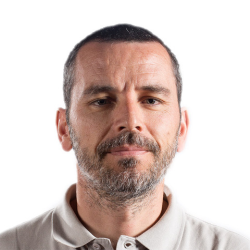
Pedro Beça
University of Aveiro
Department of Communication and Art DigiMedia
Digital Media and Interaction Research Center
Aveiro, Portugal
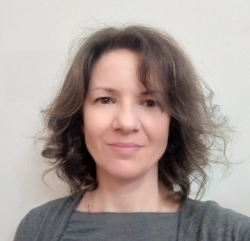
Mónica Aresta
University of Aveiro
Department of Communication and Art DigiMedia
Digital Media and Interaction Research Center
Aveiro, Portugal
Space, Sound - and the Peacocks
Abstract
«Out of the window,
I saw how the planets gathered
Like the leaves themselves
Turning in the wind.
I saw how the night came,
Came striding like the colour of the heavy hemlocks
I felt afraid.
And I remembered the cry of the peacocks.»
Wallace Stevens – “Domination of Black”
Narratologically, the study of space was, by norm, one of the last aspects to be considered, usually understood as not much relevant. Interactive digital narrative, Games, have imposed a turnaround in some priorities, and space became recognized as fundamental to the development of any story. The first to try to explore this new approach was “Oldton” - http://www.oldton.com/ - giving space a primordial role in the narrative creation. It put to use some strategies of creative writing exercises; might have a predecessor in Italo Calvino’s Il castello dei destini incrociati (1973) – The Castle of Crossed Destinies. Both these examples – Oldton and The Castle of Crossed Destinies – among other things play with the human need to make sense out of the fragmentary, to connect any scattered episodes, giving them a meaning just because they appear one after the other, if for nothing else. It is this process that lies also behind Storytelling and Games. And the construction of all the referred narratives, in last instance, is inspired by the respective title, some text that gives a hint to the reader/user/observer. In what concerns sound, in text narrative it is reproduced by a large range of strategies, from onomatopoeia, to direct reference to known music titles. It exists and subsists mainly through the reader’s personal experience. As in Wallace Stevens’ peacocks. If never heard before, anyone can imagine the sound made by these birds. But the poem only gets its full dimension of cosmic anguish if the reader has heard their shriek. In games and interactive digital narratives sound can be easily reproduced to illustrate or accompany the images, or text, enriching their meaning. However, its main objective would have to be to contribute with another instance of signification, in equal terms. In a real time/real world situation the sound effects can get more autonomous and be used in a more complex way, more so when human-like voices have been added into the process. The problem with sound is physiological. It affects directly the reptile brain – the most primitive cerebral zone, directly associated with primary emotions. It has to travel to the primate brain to be processed, and rationalized. In any particular situation where the story is being built by the user, these diverse sounds would give different meanings to the episode experienced, tainting it with different kinds of emotions, actually changing the narrative.
Curriculum Vitae Helena Barbas
to be added

Helena Barbas
Lisbon, Portugal
Round Table Discussion
The Use of Digital Games and AI for Health and Wellbeing
Chaired by Liliana Vale Costa, Department of Communication and Art, University of Aveiro, Aveiro, Portugal
Panel Description
The panel involves both industry and research experts in game design and its usage in the health sector.
Curriculum Vitae
Maria Mesa is a social impact driven entrepreneur, diversity and inclusion advocator and today COO of Alternova, a software company that uses video game engines and data to build interactive experiences that are contributing to make healthcare accessible, democratic and fun.
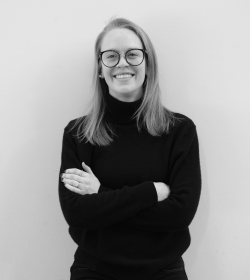
Maria Clara Mesa
Alternova
Newark, USA
Curriculum Vitae
Luis Quintero is a PhD student in the Department of Computer and Systems Sciences at Stockholm University, Sweden. His research interests are time-series analysis, machine learning, and virtual reality. He is currently exploring how real-time data science can help to create more personalized immersive systems in healthcare, education, and industry.
Curriculum Vitae
Ricardo is an experienced back end developer. CEO and Co-Founder at Alternova, a software development focused in Digital Health where we envision a world in which digital technology positively transforms patients' experience, increases patient engagement with treatment, and boosts accuracy of diagnoses and access to them.
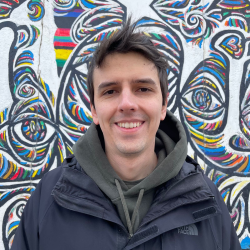
Ricardo Velásquez
Alternova
Newark, USA
Curriculum Vitae
John is a game designer and interface technologist specialized in the use of physiological signals to optimize the user experience while using interactive systems. John is currently a postdoctoral fellow at the University of Waterloo carrying out research in the fields of assistive technology, human-robot interaction, and virtual reality. John has co-designed multiple games that can be used in healthcare scenarios such as exercise promotion in older adults, self-regulation training in children with special needs, and cognitive training in neurorehabilitation therapies. John has created multiple software tools and design frameworks that allows the integration of playful activities and physiological signals in interactive systems such as social robots and virtual simulations.
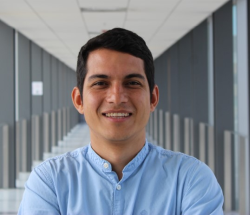
John Edison Muñoz Cardona
Postdoctoral Fellow, Game Designer
Interface Technologist
University of Waterloo
Canada







